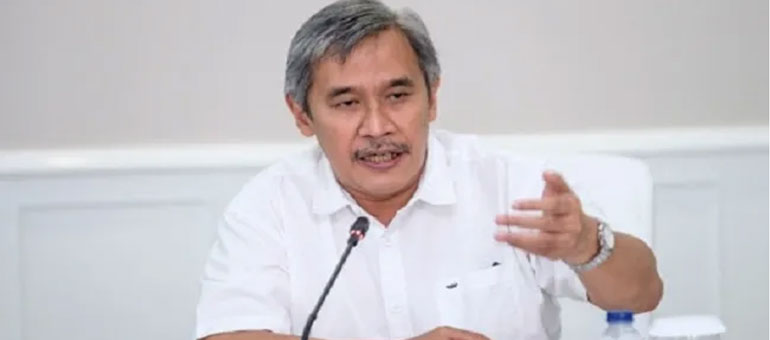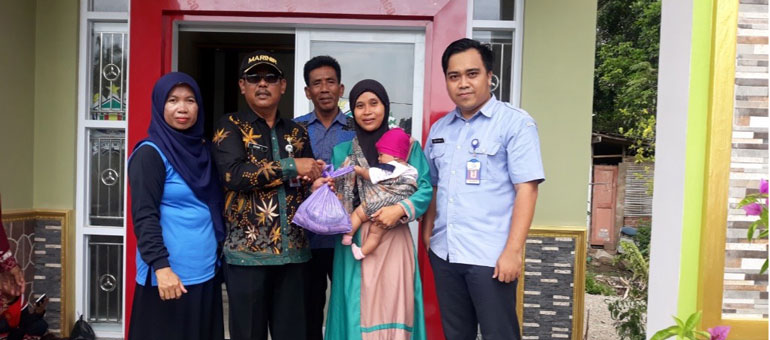In 2018, GAIN in collaboration with Ministry of Health (MoH) established Jejaring Pasca Panen untuk Gizi Indonesia (JP2GI), formerly known as the Indonesia Postharvest Loss Alliance (IPLAN). The coalition, with the assistance from GAIN, has successfully established a network of 642 individuals across different sectors and fields including researchers and academics, as well as collaborated with government ministries and institutions, including the Ministry of Marine Affairs and Fisheries, and the Ministry of National Development Planning Agency (BAPPENAS), in ensuring an increased supply of fish and fish products for Indonesia’s population. GAIN has facilitated the entire process of the initial establishment of the secretariat, provided resources for its networking process and outreach activity to disseminate information about this coalition.
With the establishment of a wide network and dissemination, JP2GI was entrusted by the Ministry of Marine Affairs and Fisheries (MMAF) in 2021 to conduct an in-depth landscape analysis of the local fish supply chain to pinpoint the challenges that cause fish harvest loss and how JP2GI interventions can address it. The value of support from MMAF was around 70% of the total budget for the landscape analysis study.

Sjarief Widjaja, Head of research and Human resource management Ministry of Marine and Fisheries. © GAIN
According to Sjarief Widjaja, Head of Research and Human Resources Management of the Ministry of Marine Affairs and Fisheries, his department supported JP2GI to conduct the study as they wanted to reduce post-harvest loss from fish and make more people consume fish as a source of protein. "Fish are not only obtained from the market but can also be produced from fishermen's families, cultivators, and fish processors around their homes. So, this is our effort firstly, to increase public attention towards fish consumption, secondly to encourage people to become fish farmers and cultivate their own fish for private and commercial use, and thirdly to improve the quality of fish effectively and efficiently, resulting in high production levels".
Curbing Fish Harvest Loss
Widjaja acknowledges that nutrients found in fish are very important for human diets. Unfortunately, there is too much waste loss from fish production. Therefore, his department has been encouraging ways to prevent fish loss waste right from the process of catching and cultivating, to the supply chain and consumption. Although Indonesia has great marine resources that have competitive advantage to increase economic income, almost 40% of fish harvested is lost and wasted due to poor fishery management.

Faridjan delivers fish to community representative. © GAIN
Increased consumption of fish in Indonesia is essential. Nutritional deficiencies are common including 30% stunting among children under five partially caused by chronic undernutrition. Almost 50% of pregnant women are anemic, a high proportion due to nutrient deficiency, particularly in iron. In Indonesia, fish is an important source of protein, vitamins, minerals, and essential fatty acids. It is cheap and easily found in markets in coastal areas, but it is easily spoiled before reaching customers living inland.
Affordability can also be a barrier for poorer households.
Research data from 2020 suggests that fishery production in Indonesia reached 7.7 million tons. Meanwhile, the average consumption of fish in Indonesia is around 78.4 grams per person per day while at the same time having around 19.4 million Indonesians who are unable to meet their daily nutritional needs (World Food Program study, 2017)
With the support from eight Maritime Academies under the management of the Ministry of Marine Affairs and Fisheries, JP2GI conducted the study in 14 priority locations: Jakarta, Cilacap, Probolinggo, Jembrana, Yogyakarta, Tegal, Bitung, Ambon, Kupang, Banyuwangi, Serang, Maros, Bantul and Sorong.
The main purpose of the study was to connect small scale fishermen and sellers with the government and regulators to give them a platform to have discussions. The results of the study have been used by the Ministry of Marine Affairs and Fisheries to develop their strategic plan in managing fish loss and waste.
Impacts of JP2GI program work has also influenced BAPPENAS to include JP2GI as part of a think-tank group for developing the 2020-2024 National Medium Term Development Plan (RPJMN) and which has mainstreamed the Sustainable Development Goals (SDGs). Several of the 17 SDGs along with their indicators have become an inseparable part of the seven current development agendas of the Government of Indonesia.
Scaling Impact
Through its education and awareness program, JP2GI has also impacted some of its 642 members to conduct social projects in their respective locations. For example, since 2021, 47-year-old Faridjan Soemardi, a civil servant working for the District Office of the Ministry of Marine Affairs and Fisheries in Kebumen, Central Java, has initiated a social project for distributing fresh fish and fish related products (nugget, crackers, fish stick, etc.) to poor families including households with pregnant women, children under five years old, and elderly people, to increase their protein consumption.
The regular educative training programs via routine webinars, conducted by JP2GI with GAIN’s support and assistance, has influenced him to develop a proposal for distributing fish products to poor families and until now, the initiative has been recognized by Central Java provincial government and been scaled up to other districts in Central Java province. The value of the fish distribution is $4 USD per family per month.
Not just nationally, JP2GI was also recognized globally. It won the Best Practices Award in Sustaining Urban Food Systems from the Dubai International Award for Best Practices in 2022.
To-date JP2GI has been able to run independently and has successfully attracted more than 600 members across Indonesia. During the Business Innovation Challenge in 2019, 200 members applied improved postharvest loss technology and practices to their businesses with over 20,000 cold chain technology products sold and used by 400 fishers and 56,000 fish-based food products sold on the local market.
Through JP2GI alliance, small-scale fishermen and fishmongers can increase their capacity to produce quality fish and reduce loss and waste. This is done through technology development, facilitating access to markets, training, and policy advocacy. Though Indonesia still has further to go to increase the availability of affordable nutritious foods in the market by reducing fish loss and waste, building alliances like JP2GI has brought significant impacts by creating a multi-stakeholder forum where people can grow and make connections and collaboration. In the future, JP2GI targets to outreach more members from fishermen, more gender approach and build strategic actions to collaborate with influential stakeholders in fish loss waste.